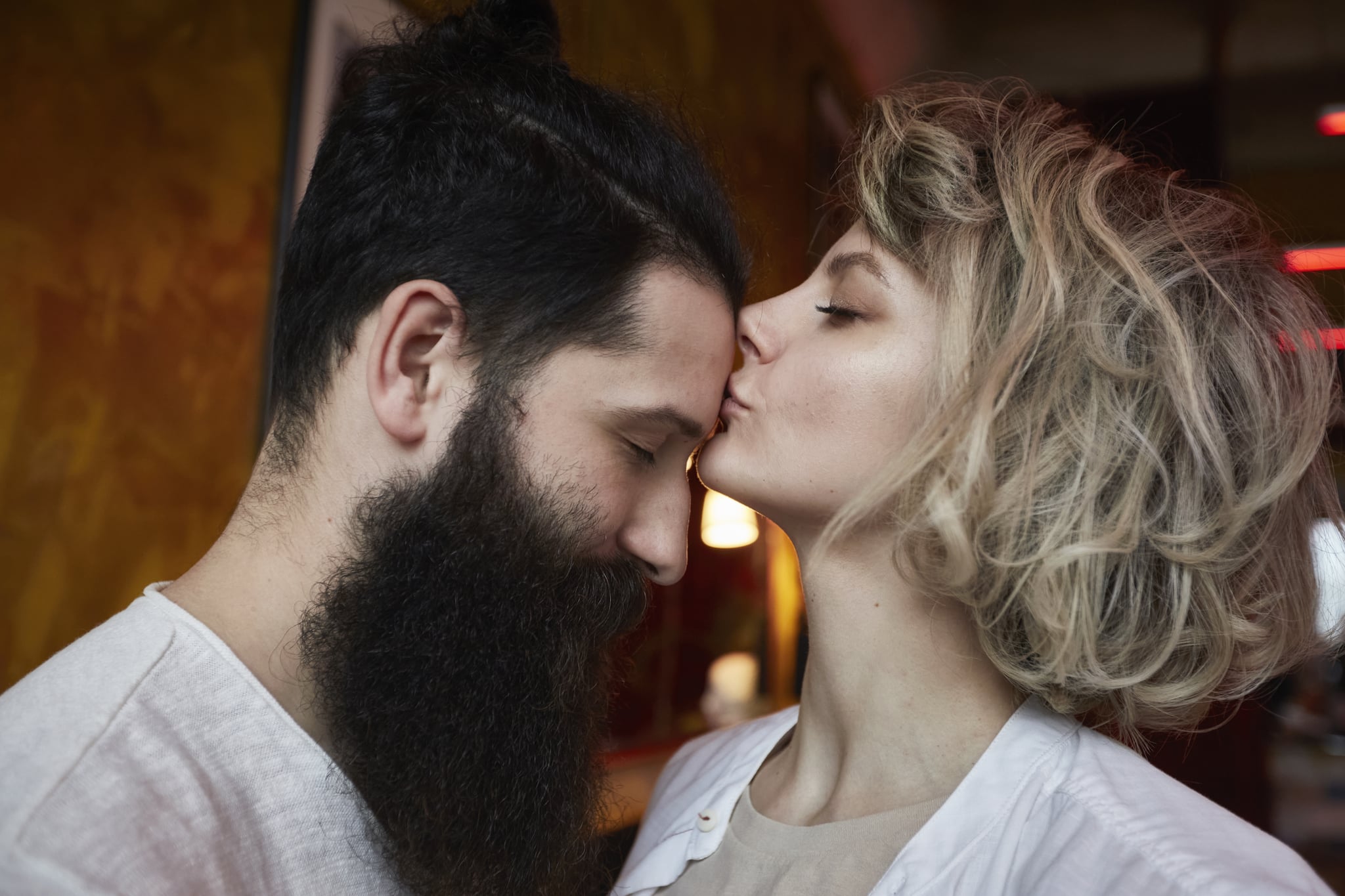Beard Burn Gone Bad: Your Partner's Facial Hair Could Give You an Infection - POPSUGAR

If you thought the worst thing that could happen to you during a makeout session was getting a slobbery tongue shoved down your throat, you could be seriously mistaken. Apparently, it's very possible to contract a bacterial skin infection when the person you're macking on has facial hair.
Don't believe me? One TikTok content creator shared her own story as proof. In the video uploaded in late March, she documented what happened to her face after kissing her boyfriend, who has facial hair. The results involve what looks to be lots and lots of skin irritation. I'll let the video speak for itself.
@jaleighrobbins2023 it was a long two weeks #LizzosBigGrrrls
♬ original sound - frankiesaudios
How does this happen? How can this be prevented? Should you now only swipe right on bare-faced individuals on Tinder? We spoke with Mamina Turegano, MD, FAAD, board-certified dermatologist at Skintap, for all the answers.
How Can You Contract a Skin Infection From Kissing Your Partner?
Dr. Turegano says this can usually happen one of two ways: your partner's beard could be harboring bacteria (usually staphylococcus aureus — more commonly referred to as "staph") or the person kissing the person with a beard could be a carrier for staph.
For context, staph is a type of bacteria commonly found on the skin or in the nose, according to the Mayo Clinic. The bacteria is most often spread through cuts, abrasions, and skin-to-skin contact, but most of the time, these bacteria cause no problems or result in relatively minor skin infections — many people carry staph bacteria and never develop staph infections. It's also fairly common: An estimated "one in three Americans are carriers of staph bacteria at any time," according to the Cleveland Clinic.
Now, back to how this could impact you if you're making out with someone who has a beard. When you kiss someone with facial hair, their beard or stubble can cut or create abrasions in your skin, allowing bacteria to enter. And if your partner's beard is harboring staph bacteria, "the trauma from the beard allows the bacteria to enter into the recipient's skin and cause an infection," says Dr. Turegano. On the other hand, if the person kissing their bearded lover is the carrier for staph, "the trauma from the beard could activate the staph on the recipient's skin, which then wants to wreak havoc on skin." (This is the case 20-30 percent of the time, Dr. Turegano notes.)
Based on the video, Dr. Turegano says this specific type of infection appears to be impetigo, a bacterial infection that commonly comes from staph. "Impetigo is a fairly common skin infection that can be very contagious and shows up as sores or clusters of blisters, commonly on the face around the nose or mouth, but it can be anywhere on the body," says Dr. Turegano.
As you can see in the video, impetigo typically has a "honey-crusted" color appearance or "dried yellowish/orange serous crust from the fluid that drains from it." Though it's most often seen in young children or babies, it can happen at any age. And not to fear: impetigo is treatable with topical or oral antibiotics.
How Likely Is This, Really? And How Can You Prevent It?
OK, so I know this may have unlocked a new fear for you, but it's really not as likely as you might think. "As common as it is for people to carry around pathogenic bacteria on their skin, the rates of something like this occurring is still low," says Dr. Turegano. She notes, however, that this could all be dependent on a myriad of factors, such as your skin barrier, your skin microbiome, the state of your immune system, the coarseness of the beard hair, your stress levels, etc. Even though it's not likely, you'll still want to be mindful that it's a possibility, so you can steer clear of a gnarly skin infection yourself.
How do you do that, exactly? For one, those with beards or facial hair should make sure they're giving their beard some regular TLC by washing it regularly — the recommendation being one or two times a day. Just like your face accumulates a buildup of dead skin cells and grime throughout the day, so does a beard. And because beard hair is even more exposed to saliva and food, it can become more susceptible to annoying bacteria, says Dr. Turegano. She recommends using CLn shampoo on facial hair since it's not only antibacterial but also gentle for regular use and for those with sensitive skin.
As for those kissing their bearded beaus, it's important for you to keep your skin clean and healthy as well. Dr. Turegano suggests washing your face no more than two times a day and moisturizing regularly to keep the skin barrier healthy. If you feel skin irritation after making out with someone with a beard, Dr. Turegano recommends cleaning the area right after and putting on a petroleum jelly-based product like Aquaphor or Vaseline. Dr. Turegano adds that a dermatologist can also test to see if you are a staph carrier if you suspect that you could be developing an infection or are at risk.
All that to say, no need to freak out or bypass all dates with have a beard or facial hair — just make sure you're both prioritizing cleanliness, OK?

Comments
Post a Comment